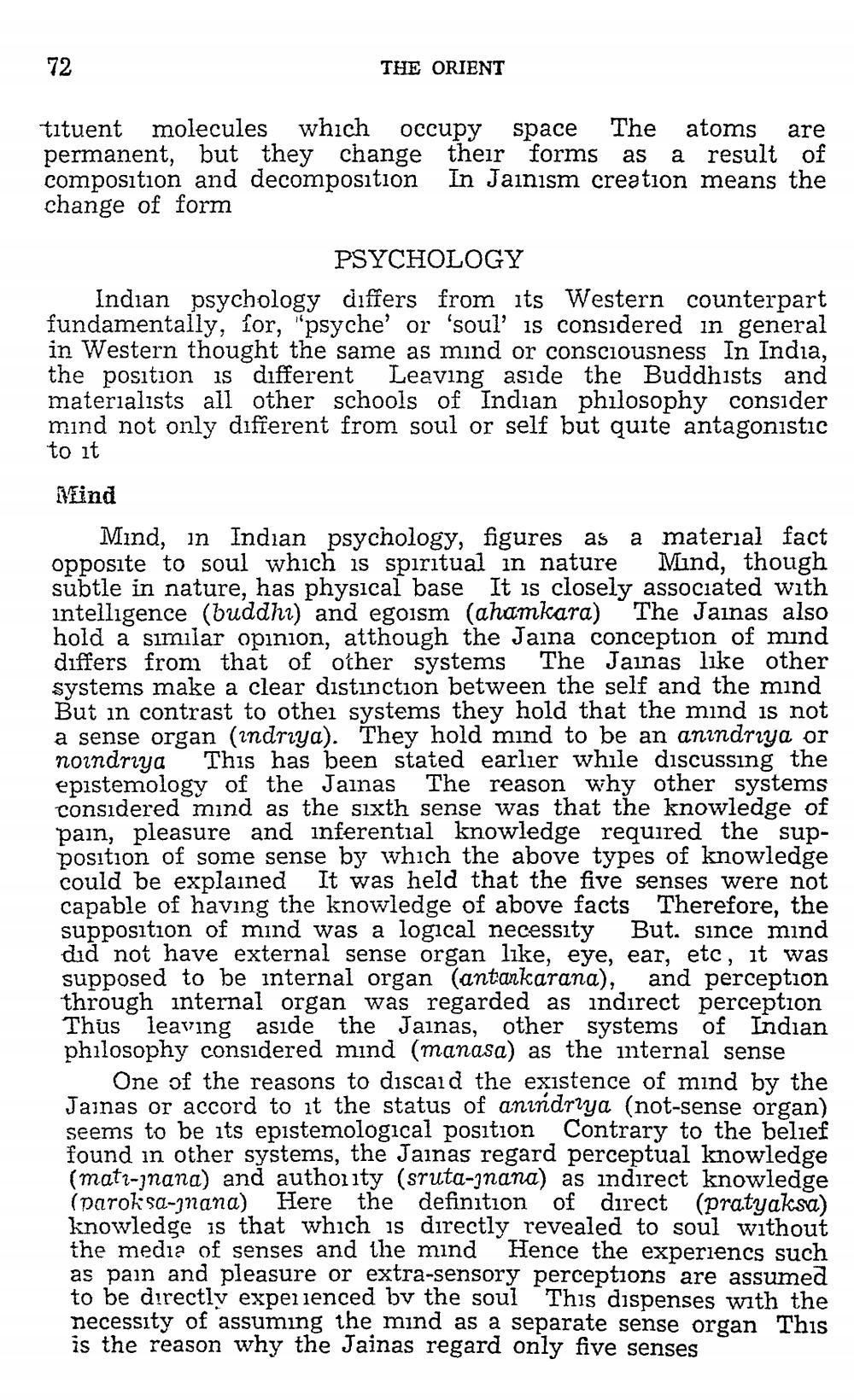________________
THE ORIENT
tituent molecules which occupy space The atoms are permanent, but they change their forms as a result of composition and decomposition In Jainism creation means the change of form
PSYCHOLOGY Indian psychology differs from its Western counterpart fundamentally, for, "psyche' or 'soul is considered in general in Western thought the same as mind or consciousness In India, the position is different Leaving aside the Buddhists and materialists all other schools of Indian philosophy consider mind not only different from soul or self but quite antagonistic to it
Mind
Mind, in Indian psychology, figures as a material fact opposite to soul which is spiritual in nature Mind, though subtle in nature, has physical base It is closely associated with intelligence (buddhi) and egoism (ahamkara) The Jainas also hold a similar opinion, atthough the Jaina conception of mind differs from that of other systems The Jainas like other systems make a clear distinction between the self and the mind But in contrast to other systems they hold that the mind is not a sense organ (indriya). They hold mind to be an anindriya or noindriya This has been stated earlier while discussing the epistemology of the Jainas The reason why other systems considered mind as the sixth sense was that the knowledge of pain, pleasure and inferential knowledge required the supposition of some sense by which the above types of knowledge could be explained It was held that the five senses were not capable of having the knowledge of above facts Therefore, the supposition of mind was a logical necessity But. since mind did not have external sense organ like, eye, ear, etc, it was supposed to be internal organ (antankarana), and perception through internal organ was regarded as indirect perception Thus leaving aside the Jainas, other systems of Indian philosophy considered mind (manasa) as the internal sense
One of the reasons to discaid the existence of mind by the Jainas or accord to it the status of anındriya (not-sense organ) seems to be its epistemological position Contrary to the belief found in other systems, the Jainas regard perceptual knowledge (matz-jnana) and authority (sruta-anana) as indirect knowledge (paroksa-znana) Here the definition of direct (pratyaksa) knowledge is that which is directly revealed to soul without the media of senses and the mind Hence the experiencs such as pain and pleasure or extra-sensory perceptions are assumed to be directly experienced by the soul This dispenses with the necessity of assuming the mind as a separate sense organ This is the reason why the Jainas regard only five senses




